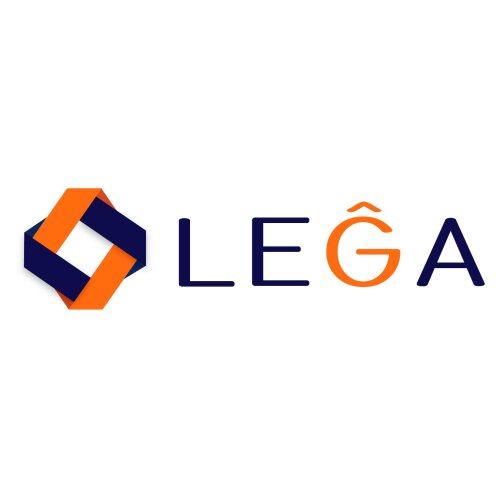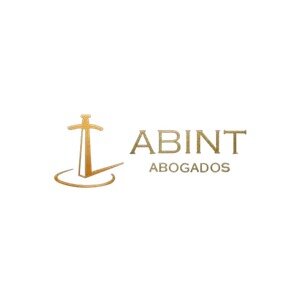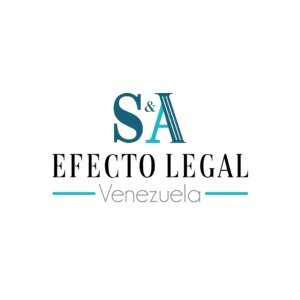Best Nonprofit & Charitable Organizations Lawyers in Venezuela
Share your needs with us, get contacted by law firms.
Free. Takes 2 min.
Or refine your search by selecting a city:
List of the best lawyers in Venezuela
About Nonprofit & Charitable Organizations Law in Venezuela
In Venezuela, nonprofit organizations and charitable entities play a crucial role in delivering essential services and fostering community development. These organizations are typically formed to achieve specific public benefit goals, support various causes, or aid those in need. Venezuelan law provides a framework for the establishment, operation, and regulation of these entities, ensuring they operate transparently and align with the objectives outlined in their respective charters.
Nonprofit organizations can take various legal forms, including foundations, associations, and civil societies. Each form has its own legal requirements and governance structures, with oversight typically managed by Venezuelan government agencies. The legal framework also addresses issues such as tax exemptions, accountability, and compliance with national and international reporting standards.
Why You May Need a Lawyer
Engaging a lawyer specializing in nonprofit and charitable organizations can be beneficial in numerous situations. These professionals provide guidance on registration and compliance with regulatory requirements, which can be a daunting task for newcomers. Furthermore, they offer expertise in navigating the complexities of tax laws and securing exemptions or benefits that may be available.
Legal advice is also crucial when drafting governing documents such as bylaws, articles of incorporation, or partnership agreements, ensuring these documents comply with Venezuelan law and adequately protect the organization's interests. Lawyers can also assist with conflict resolution within organizations, mergers with other nonprofit entities, and understanding the implications of international collaborations or receiving foreign donations.
Local Laws Overview
Venezuelan law regulates nonprofit and charitable organizations through specific statutes that define their formation and operation criteria. Key aspects include:
- Registration Requirement: Organizations must register with the appropriate government body, providing detailed information about their purposes and operational plans.
- Governance and Structure: There are mandates on organizational structure, including board formation, roles, and responsibilities to ensure accountability and transparency.
- Taxation: Nonprofits may be eligible for tax exemptions, but they must adhere to strict reporting and operational guidelines to maintain this status.
- Fundraising Regulations: There are rules governing how nonprofits can solicit and accept donations, aimed at preventing fraud and ensuring donor rights.
- Foreign Collaborations: Organizations working with foreign entities can face additional scrutiny and must comply with international cooperation regulations.
Frequently Asked Questions
What is the process for registering a nonprofit in Venezuela?
The process involves submitting an application to the appropriate government ministry, which oversees nonprofits. The application must include the organization's statutes, purpose, and governing body details.
Are nonprofits in Venezuela eligible for tax exemptions?
Yes, registered nonprofits may be eligible for tax exemptions, but they must comply with specific operational and transparency requirements.
Can a nonprofit engage in commercial activities?
Nonprofits can engage in commercial activities as long as the profits are used to support their charitable purposes and not distributed to members.
What are the reporting requirements for nonprofits?
Nonprofits must provide annual reports detailing their activities, financial statements, and how funds are utilized to remain in good standing with regulatory bodies.
How can a nonprofit dissolve legally?
Dissolution must comply with the procedures outlined in the organization's bylaws and may require approval from members and notification to the registering authority.
What legal liabilities do board members have?
Board members are typically held to fiduciary duties and may be liable for misconduct or failure to adhere to the organization's statutes and regulations.
Can foreign organizations establish operations in Venezuela?
Yes, foreign nonprofits can operate in Venezuela, but they must adhere to local registration and compliance requirements and may face additional scrutiny.
What happens if a nonprofit loses its tax-exempt status?
Losing tax-exempt status can have significant financial implications. It often results from failing to comply with regulations, and legal assistance may be needed to address and rectify the situation.
Are nonprofits in Venezuela allowed to lobby?
Nonprofits can engage in advocacy and lobbying, but there are often limitations on the extent and nature of such activities, especially regarding political matters.
How does receiving foreign donations affect a nonprofit?
Receiving foreign donations can complicate compliance requirements and may subject the organization to additional legal oversight to ensure transparency and lawful operations.
Additional Resources
For more information or assistance, consider reaching out to the following resources:
- Ministry of Popular Power for Commerce: Responsible for nonprofit registration and oversight.
- Venezuelan Bar Association: Can provide referrals to lawyers specializing in nonprofit law.
- Federation of Non-Governmental Organizations (FONG): Offers support and advocacy for NGOs in Venezuela.
Next Steps
If you need legal assistance in the field of nonprofit and charitable organizations, start by consulting with legal professionals who have expertise in this area. You can request recommendations from the Venezuelan Bar Association or contact law firms specializing in corporate and nonprofit law. Ensure that you have all relevant documents ready, such as your organization's statutes, financial records, and any correspondence with government bodies, to facilitate a comprehensive legal consultation.
Continuously staying informed about regulatory changes and seeking periodic legal check-ups can help your organization remain compliant and focus on its mission effectively.
Lawzana helps you find the best lawyers and law firms in Venezuela through a curated and pre-screened list of qualified legal professionals. Our platform offers rankings and detailed profiles of attorneys and law firms, allowing you to compare based on practice areas, including Nonprofit & Charitable Organizations, experience, and client feedback.
Each profile includes a description of the firm's areas of practice, client reviews, team members and partners, year of establishment, spoken languages, office locations, contact information, social media presence, and any published articles or resources. Most firms on our platform speak English and are experienced in both local and international legal matters.
Get a quote from top-rated law firms in Venezuela — quickly, securely, and without unnecessary hassle.
Disclaimer:
The information provided on this page is for general informational purposes only and does not constitute legal advice. While we strive to ensure the accuracy and relevance of the content, legal information may change over time, and interpretations of the law can vary. You should always consult with a qualified legal professional for advice specific to your situation.
We disclaim all liability for actions taken or not taken based on the content of this page. If you believe any information is incorrect or outdated, please contact us, and we will review and update it where appropriate.
Browse nonprofit & charitable organizations law firms by city in Venezuela
Refine your search by selecting a city.















